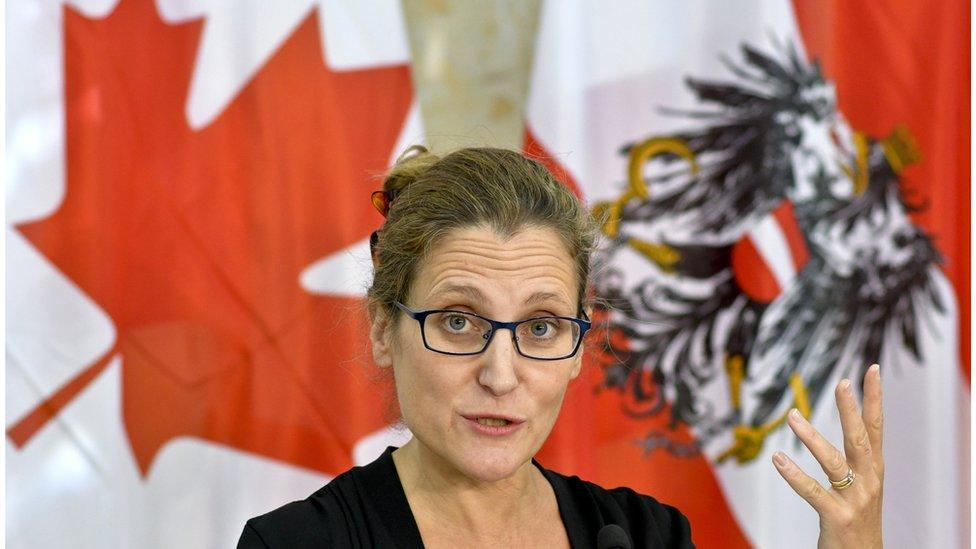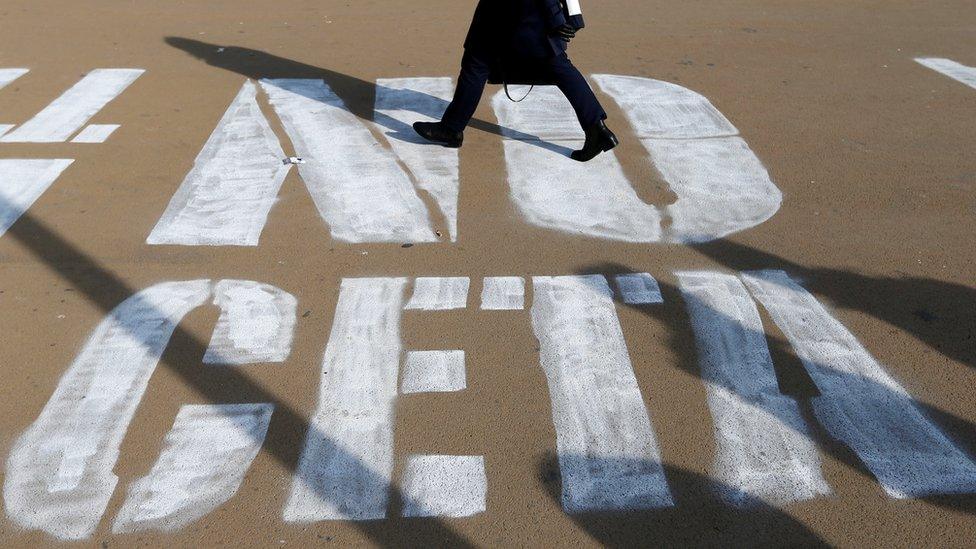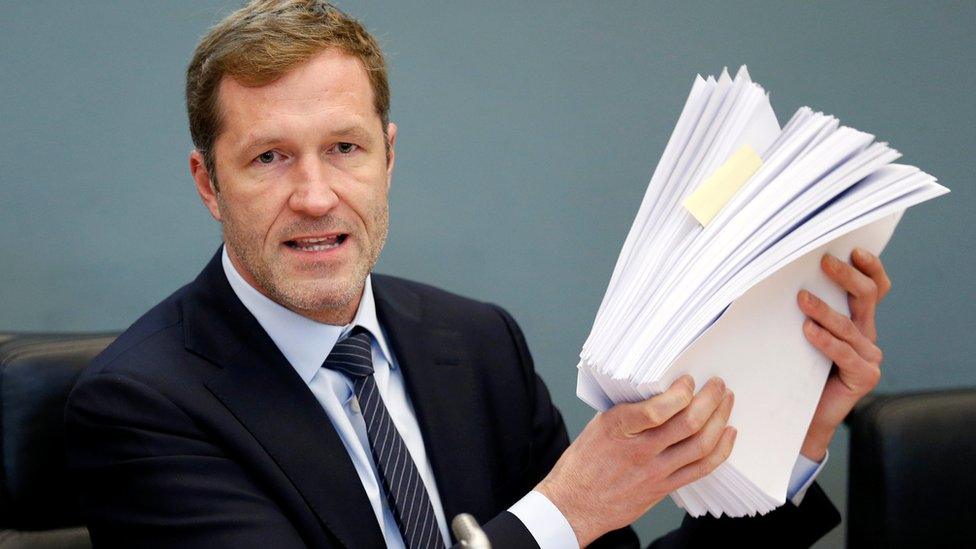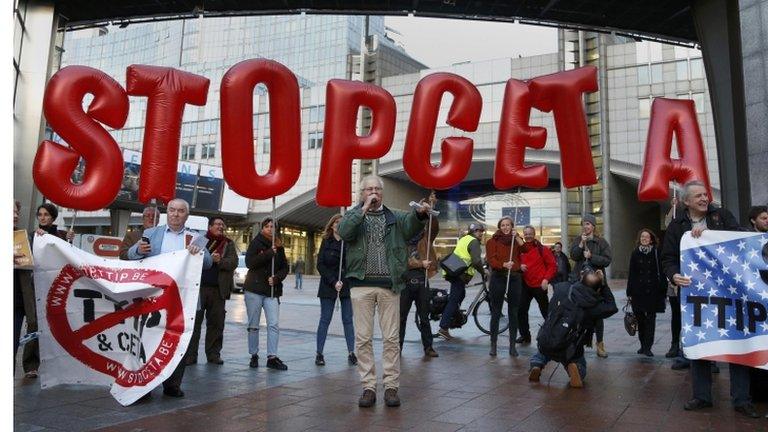Canada says it must wait for EU on Ceta
- Published

International Trade Minister Chrystia Freeland says Canada is ready to sign Ceta
Canada says its job is done on the troubled Canada-EU trade deal.
International Trade Minister Chrystia Freeland said Canada is ready to sign the Canada-European Union Comprehensive Economic and Trade Agreement (Ceta).
On Monday, Canadian Prime Minister Justin Trudeau and European Council President Donald Tusk agreed there was still time for Ceta to be signed as planned on Thursday.
But for the most part, Canada is letting European politics unfold.
"The Europeans are still hard at work. I wish them every success," Ms Freeland said in Ottawa. "If Europe is ready to sign the agreement on October 27, we'll be there."
On Friday, she was close to tears as she expressed her deep disappointment at the prospect of the deal unravelling.

The small region of Wallonia in Belgium is holding up the Canada-EU trade deal
The Liberal government has been pushing hard to get the deal - originally negotiated with the EU by Canada's former conservative government - through.
It even sought to improve the controversial Investor to State Dispute Settlements (ISDS), external mechanisms - a system through which companies can sue countries for alleged discriminatory practices - by preserving a government's right to regulate.
Belgium confirmed on Monday it could not sign Ceta, missing a deadline set by the European Commission.
The stalemate comes after Wallonia's government, a French-speaking region in Belgium, voted to block it on 14 October.
Mr Trudeau is broadly in favour of free trade, which Liberals see as a path to improving Canada's sluggish economy and job market.
The Canada-EU deal potentially surpasses the North American Free Trade Agreement (Nafta) in scope.
A joint Canada-EU study estimated Ceta would inject over CA$12b ($8.9bn/£7.3bn) of new revenue into the Canadian economy and increase trade by 20%.
According to the European Commission, the value of bilateral trade in goods between the EU and Canada was CA$92.5bn ($69.1bn/£56.6bn) in 2015. Canada is the EU's 12th most important trading partner. , external
From canola and barley growers to pork producers, automobile manufacturers, pharmaceutical companies and the aerospace industry, Ceta has strong support from Canadian business sectors seeking greater access to the EU's 508 million customers.
The backlash against the deal is not as strong in Canada as in Europe, where there have been lawsuits, petitions and street protests.
In fact, the few polls, external that have taken the temperature of the Canadian public on the issue suggest about 20% to 30%, external have no opinion on the deal at all.
Still, there is opposition.
Canadian dairy farmers fiercely oppose the deal, saying they are concerned with the level of access given to fine cheeses from Europe.
There has also been concerns it would increase pharmaceutical costs, hurt farmers and the manufacturing sectors, and erode Canadian sovereignty.
- Published24 October 2016

- Published22 October 2016
